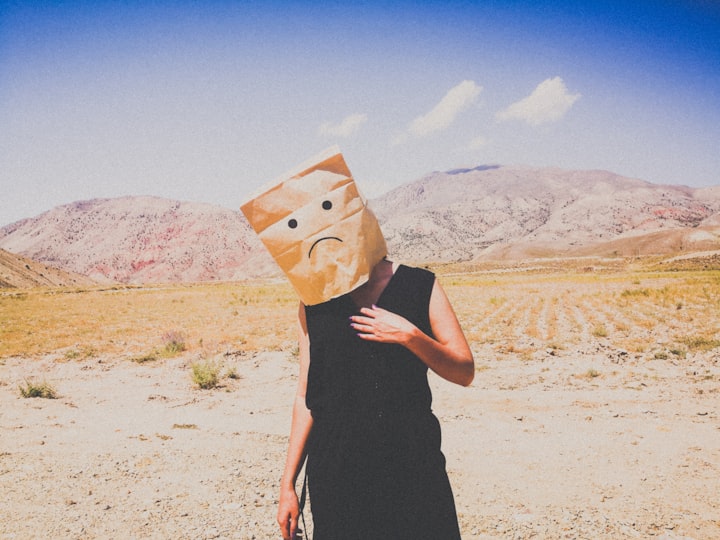Living On False Hopes, Why Do We Do It?
Although we are told that "hope is never lost", there are situations in which it is better to let go and turn the page. After all, whoever feeds on false hope suffers very real suffering.

Living on false hope is a form of torment. It is to be suspended in an anteroom of impossible desires, unattainable goals and dreams that soon burst like a soap bubble.
Yet we often do, we feed on impossibilities without being able to see the real possibilities, without even being able to escape from that spiral of frustration and suffering.
Much has been written and said on the subject of hope. Thus, on most occasions it is common to attribute to this dimension a halo of positivity because, after all, how is the human being going to live without this entity that remained in last place after Pandora let all possible evils escape into this world?
Indeed, hope is the last thing to be lost and it is that treasure that must be preserved at all times and in all circumstances.
Now, what we have not been told is that there is good hope and bad hope.
There is a healthy approach and an unhealthy one, one that curtails potential, self-esteem and even our psychological health.
There is even what is known as "false hope syndrome", a behavior that, far from describing a disorder, defines an almost unconscious habit that many of us fall into.
Let's delve a little deeper into this topic.
"If at first the idea is not absurd, then there is no hope for it."
-Albert Einstein
Living on false hope: when we feed on fantasies that do harm.
A first aspect we should be clear about is that hope is not the same as optimism. It is not clinging to the idea that something we want so much will turn out well.
We say this because when we look up the definition of this word, it is common to find ideas such as faith, positivity, optimism, etc.
In reality, this term implies, above all, having the certainty that the something we want makes sense and that it deserves our efforts, will and patience.
Assuming this approach would be much healthier for everyone; however, we continue to do it...
Living on false hopes is that little defect that sometimes adheres to the mind and that we find so hard to correct.
But why do we do it?
When wishing "too much" makes us believe that something can happen.

In general, when we want something very much, it seems that the chances of it happening increase. Thus, and although all hope implies the probability that certain realities will end up happening, there are times when what we are nurturing are not desires, but fantasies.
And in these cases, the probability of such things happening is "zero".
The reason why someone comes to live on false hopes is due in part to our culture, our religions and even to our own education.
Likewise, from any approach to personal growth or positive psychology, we are also encouraged to maintain hope, to endow each of our purposes with that illusion and faith.
Nor can we leave aside an obvious fact: if we convince a person that the hopes he defends and maintains are false, what he is left with is reality.
Sometimes, when we remove that "golden layer", what emerges is something that we do not want to face, hence, feeding the false hope is nothing more than a defense mechanism.
Living on false hope (or on goals we are not working towards)
This fact may seem striking, but it is important to take it into account.
According to psychologist Peter Herman of the University of Toronto, many of us suffer from what he calls "false hope syndrome".
In a study carried out by himself and his team in 2000, he demonstrated how a large part of the population lives by nurturing expectations in which they rarely invest time and effort.
Now, what exactly does Dr. Herman mean when he talks about false hopes? Basically, he is referring to feeding desires or goals that, even if they are not impossible or mere fantasies, will never happen because we do nothing to make them happen. To understand it better we will give some examples:
- Elena hopes to find the job of her life. However, she does not do anything concrete to achieve it (improve her studies, send her resume to other provinces, try other markets, etc.).
- Pablo hopes that his relationship with his partner will improve. However, in reality, he is adopting a passive attitude. He is waiting for the other party to do something about things.
These two situations also perfectly define what it is to live on false hope. These are two people who are merely nurturing desire, faith and optimism towards something that they hope will miraculously happen at some point.
However, they forget to apply the principles of healthy hope. They are as follows.
The pillars of good hope

Hope, as Martin Seligman rightly pointed out, is a strength of character. As such, it requires us to put these keys into practice:
- Be clear that what we desire is realistic and within our means.
- Any feasible and healthy hope avoids passivity. If we wish for something that is possible, we have to break down those desires into goals and resolutions to be fulfilled on a daily basis.
- Hope is a constructive feeling. We must chart a path and follow it, but sometimes, we will be forced to rebuild and rethink certain things.
- Hope is also trusting in ourselves and knowing that, to a large extent, what will happen is in our hands. If we place our hopes on someone else's shoulders, we will reduce the chances of that wish coming true.
In conclusion, in order to stop living on false hopes, we need that faith and optimism to materialize in concrete and realistic facts. It is appropriate and necessary to nurture positive expectations about our future, but let us always do so in a balanced way.
About the Creator
creatorsklub
I write about tips and strategies for enhancing life. Some advice and insights because life is already to hard to be alone on it!
Enjoyed the story? Support the Creator.
Subscribe for free to receive all their stories in your feed. You could also pledge your support or give them a one-off tip, letting them know you appreciate their work.






Comments
There are no comments for this story
Be the first to respond and start the conversation.